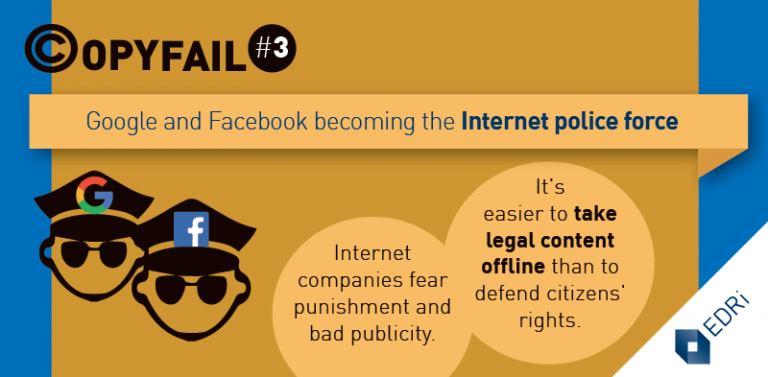The centre-right group in the European Parliament, EPP, just released an article on its’ website: The Fight Against Online Radicalisation »
Let me copy paste a few passages…
This would mean limiting the internet reach that ISIS and other extremist groups have on our social media networks. To ban them completely would be impossible as it is difficult enough to figure out who is an extremist recruiter and who isn’t on Facebook and Twitter, but we can certainly limit and delete their Facebook pages and bar their accounts. (…)
It has been agreed that Europol is to obtain greater powers to deal with the tackling of the terrorist threat online. New specialist units, monitored by an European Data Protection Supervisor and a Joint Parliamentary Scrutiny Group, will be set up that will be able to contact social network providers (Facebook, Twitter etc.) directly to ask that pages and accounts run by ISIS are shut down as fast as possible.
Obviously, we need to make a stand against radical Islamism and others who advocate violence and who do not respect human rights and civil liberties. But is censorship really the right way to do it?
Either you have freedom of speech or you don’t. If you restrict free speech, e.g. by censoring Internet content, per definition you have lost it.
The only acceptable exception would be clearly expressed, substantial threats directed against other people’s life, security or property.
It is true that radical Islamism is a murderous ideology. But so is Communism and Fascism. Banning all bad and dangerous doctrines would have far-reaching implications. And who is to decide what to censor?
If we introduce far-reaching online censorship you can be absolutely sure that it will be extended beyond its’ original purpose.
Actually, we are already there. In many countries, xenophobic and anti-immigration Internet activities are prohibited, censored and can lead to prosecution. What is considered to be acceptable opinions or banned hate speech is a matter of definition. And once again, who is to decide?
The irony of it all is that the same set of rules are used to silence radical Islamism as anti-Muslim, anti-immigration rants.
Radical Islamism aiming at limiting other people’s freedom, human rights and/or civil rights must be opposed. Strongly. But it must be done in a frank debate and by good examples.
You simply cannot defend a free and open society by limiting people’s human and civil rights (such as freedom of speech).
/ HAX

